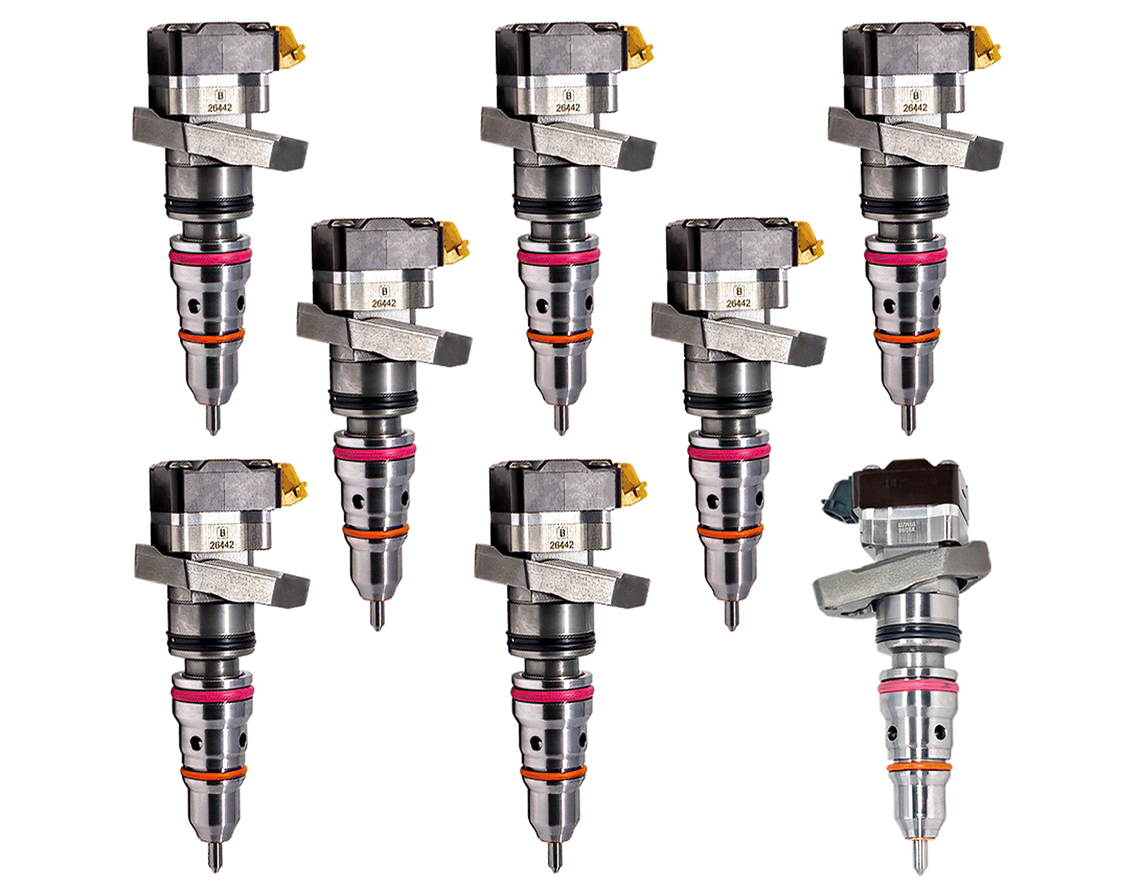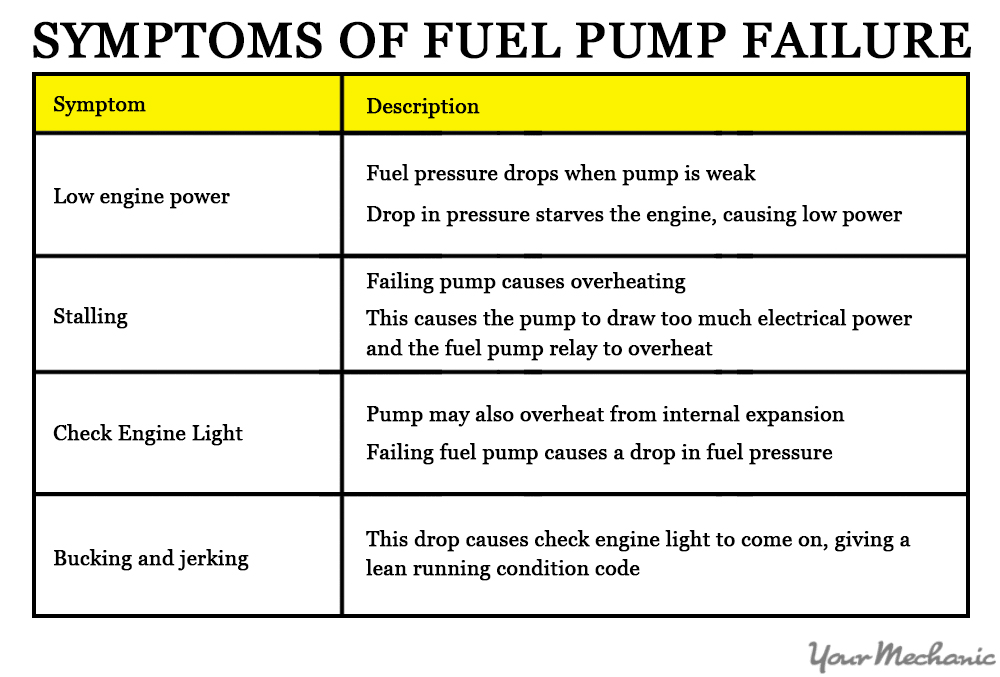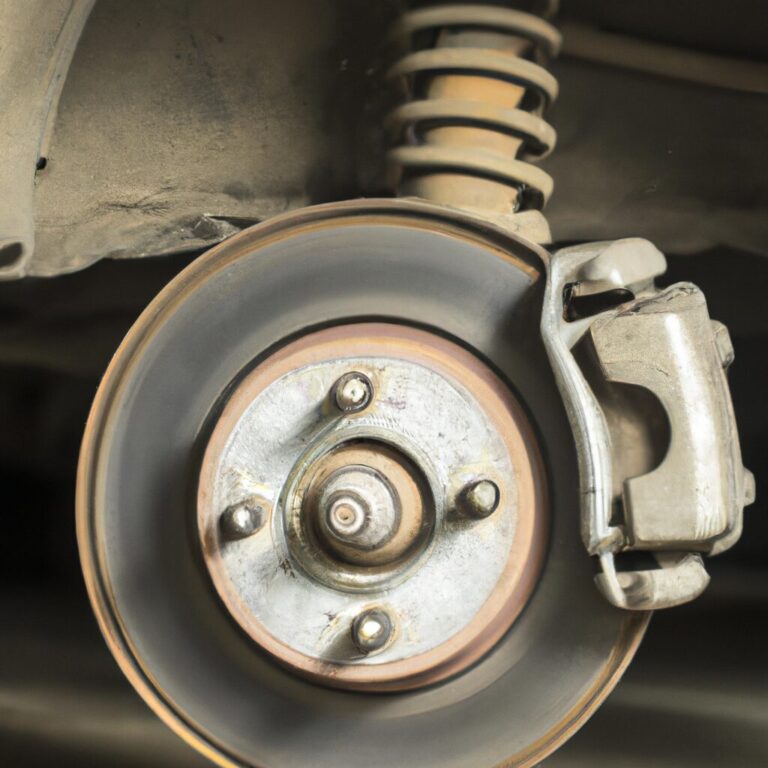How to Tell If Injection Pump is Bad
To tell if an injection pump is bad, look for poor engine performance and fuel efficiency. A malfunctioning pump might also cause rough idling and difficulty starting the vehicle.
A faulty injection pump can lead to various issues with the engine, impacting its overall performance. This problem can result in decreased fuel efficiency and power output, as well as increased emissions and potentially costly repairs if left unresolved. Regular inspection and maintenance of the injection pump are crucial to ensure optimal vehicle performance and longevity.
By being vigilant of these signs, you can address any potential issues promptly and avoid further damage to your vehicle’s engine.
Common Signs Of A Bad Injection Pump
If you notice a drop in engine performance, hard starting, or excessive smoke from the exhaust, it could be a sign of a bad injection pump. Additionally, if the engine stutters or hesitates during acceleration, it may indicate a faulty injection pump.
Keep an eye out for these common signs to detect potential injection pump issues.
Engine Misfires And Rough Idling
One of the most common signs of a bad injection pump is engine misfires and rough idling. When the injection pump starts to fail, it can cause the fuel to not be properly distributed to the engine cylinders, leading to engine misfires and a noticeable decrease in performance. You may experience a rough or unsteady idle, where the engine feels like it’s struggling to maintain a steady RPM. This can also be accompanied by a noticeable vibration or shaking of the vehicle.
Decreased Fuel Efficiency
Another clear indication of a bad injection pump is decreased fuel efficiency. The injection pump is responsible for delivering the right amount of fuel to the engine for combustion. When it starts to malfunction, it can lead to an incorrect fuel-air mixture, resulting in poor fuel efficiency. You may find yourself visiting the gas station more frequently, as your vehicle consumes more fuel than usual. Keep an eye on your fuel consumption and if you notice a significant decrease, it may be time to have your injection pump inspected.

Credit: bostechauto.com
Issues With Starting The Vehicle
When it comes to determining if your injection pump is bad, one of the key indicators is issues with starting the vehicle. This can manifest in different ways, including extended cranking before the engine starts and the engine stalling after starting.
Extended Cranking Before Engine Starts
If your vehicle requires excessive cranking before the engine starts, it could be a sign of a failing injection pump. This issue can indicate problems with fuel delivery or pressure, causing the engine to struggle to ignite. It’s essential to address this promptly to prevent further damage.
Engine Stalls After Starting
An engine that stalls immediately or shortly after starting may point to a faulty injection pump. This symptom suggests that the pump is not delivering fuel consistently or at the right pressure, leading to erratic engine performance. If you experience frequent stalling, it’s crucial to have the injection pump inspected and potentially replaced.
Unusual Noises From The Injection Pump
Unusual noises from the injection pump can be an indication of a potential issue that needs to be addressed promptly. Paying attention to the sounds coming from the injection pump can help you identify if there is a problem that requires professional attention.
Loud Clicking Or Knocking Sounds
Loud clicking or knocking sounds coming from the injection pump can signal a problem with the internal components. These noises can indicate issues such as worn-out parts or insufficient lubrication.
Whining Or Whistling Noise
Whining or whistling noise from the injection pump may suggest issues like air getting into the system or a malfunctioning pump. It is crucial to address these sounds promptly to prevent further damage.
Excessive Smoke From The Exhaust
Excessive smoke coming from the exhaust is a clear indication that there might be an issue with your vehicle’s injection pump. This can be a cause for concern as it not only affects the performance of your engine, but it also pollutes the environment. By understanding the different types of smoke and what they signify, you can quickly identify whether your injection pump is bad and take appropriate action.
Black Smoke
If you notice thick, black smoke billowing from your exhaust, it is a sign that your injection pump might be experiencing problems. Black smoke usually indicates that there is an excess of fuel being injected into the combustion chamber. This could be caused by a worn-out injector nozzle, a faulty fuel pump, or an issue with the fuel-to-air ratio. It’s important to address this problem promptly as it can lead to poor fuel efficiency and engine damage in the long run.
White Smoke
On the other hand, if you observe white smoke coming out of your tailpipe, it could also be a warning sign of a faulty injection pump. White smoke typically suggests that there is an issue with the combustion process, resulting in unburned or partially burned fuel being expelled from the exhaust system. This could be due to a variety of reasons, such as a damaged injection pump, a faulty glow plug, or coolant leaking into the combustion chamber. It is crucial to have this issue diagnosed and repaired to prevent further engine damage.
In conclusion, excessive smoke from the exhaust can be an indicator that your injection pump is malfunctioning. Black smoke signifies an overabundance of fuel, while white smoke suggests issues with the combustion process. If you notice either of these smoke types, it is advisable to consult a professional mechanic to properly diagnose and resolve the problem with your injection pump, ensuring optimal engine performance and reducing environmental pollution.
Conclusion And Prevention
The best way to determine if your injection pump is malfunctioning is by observing symptoms such as difficult starting, poor fuel efficiency, and engine misfires. Regular maintenance can help prevent pump issues, such as ensuring clean fuel filters and using high-quality diesel fuel.
Diagnosing and addressing injection pump issues is crucial for the smooth functioning of your vehicle. Regular maintenance and care play a significant role in preventing injection pump problems. By following proper maintenance practices, you can extend the life of your injection pump and minimize the risk of costly repairs.
Diagnosing And Addressing Injection Pump Issues
If you suspect your injection pump is bad, look out for signs such as engine misfires, a decrease in fuel efficiency, and difficulty starting the vehicle. It’s essential to address these issues promptly to prevent further damage to the injection pump and the engine. Seeking professional assistance can help accurately diagnose the problem and ensure it is addressed effectively.
Regular Maintenance And Care
- Make sure to follow the manufacturer’s recommended maintenance schedule for your vehicle.
- Use high-quality fuel and regularly replace fuel filters to prevent contaminants from damaging the injection pump.
- Keep an eye on the condition of the injection pump and have it inspected during routine servicing.
- Pay attention to any unusual noises or vibrations, as they can indicate potential issues with the injection pump.

Credit: m.youtube.com

Credit: www.yourmechanic.com
Frequently Asked Questions For How To Tell If Injection Pump Is Bad
What Are The Symptoms Of A Bad Fuel Injection Pump?
Symptoms of a bad fuel injection pump include hard starting, poor fuel economy, rough idling, and loss of power.
What Happens When Your Injection Pump Goes Out?
When your injection pump goes out, your vehicle may experience loss of power and engine misfires. Repair or replacement is necessary to restore proper engine function.
Can You Test A Diesel Injector Pump?
Yes, it is possible to test a diesel injector pump.
Can You Drive With A Bad Injector Pump?
Yes, driving with a bad injector pump can lead to engine misfires, loss of power, and poor fuel efficiency. It can also cause damage to other engine components. It is best to have the injector pump repaired or replaced to avoid further issues.
How Can I Tell If My Injection Pump Is Bad?
If your engine is stalling or losing power, it might be a sign of a faulty injection pump.
What Are The Common Symptoms Of A Bad Injection Pump?
Common signs include rough idling, difficulty starting, and decreased fuel efficiency.
Can A Faulty Injection Pump Cause Engine Hesitation?
Yes, a malfunctioning injection pump can lead to engine hesitation and a loss of acceleration.
Conclusion
Being able to identify the signs of a bad injection pump in your vehicle is critical for maintenance and repairs. By understanding the symptoms such as rough idling, decreased fuel efficiency, and increased smoke emissions, you can take the necessary steps to address the issue promptly.
Regular inspection and servicing of your injection pump can help prevent further damage and keep your vehicle running smoothly. Don’t overlook these indicators and ensure the longevity of your vehicle.

